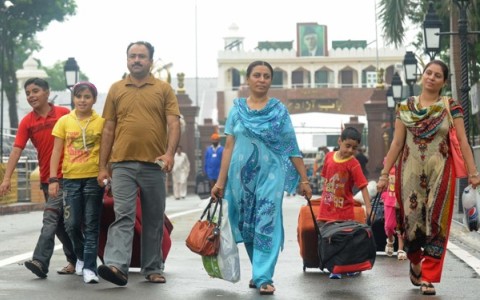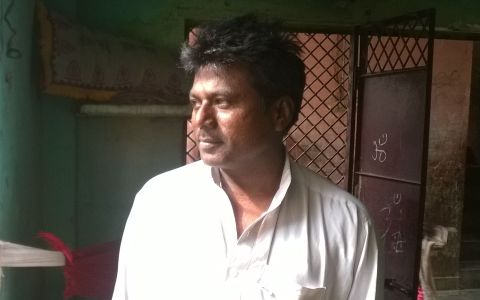Are Pakistani Hindus wise to walk out on their homeland?
by - 25th July 2014

PAKISTANI Hindus feeling persecuted in their own country have found an ally across the border in India, and many are being tempted to emigrate despite warning signs that they face an uncertain future.
Right-wing Hindu organisations, like the ruling Bharatiya Janata Party (BJP), are fighting the corner of immigrant Hindus and pushing for greater acceptance.
But it’s a long journey to becoming an Indian citizen, while some say persecution of Hindus is a myth.
When Dhani Ram, 46, went to India along with 13 members of his family, he left behind his ancestral land, his house, his friends and the fear of being harassed because he was a Hindu.

‘I couldn’t take it anymore,’ he said.
‘Hindus have to live a life of fear in Pakistan. I’ve faced it my whole life and I wanted to ensure my children do not face a similar humiliation.’
Discrimination against Hindus in Pakistan has been revealed to be widespread in schools.
A report by the Sustainable Development Policy Institute found that a ‘pejorative treatment of minority religions in the textbooks and the biased attitudes of teachers led to discriminatory attitudes of students towards religious diversity.’
Another report released by the Movement for Solidarity and Peace (MSP) in April 2014 claims there is widespread forced conversion to Islam.
Ram’s story is common. Over the last decade large numbers of Pakistani Hindu refugees have headed to India in hopes of finding a better future.
According to Seemant Lok Sanghatana, an organisation working with Hindu refugees, 120,000 Pakistani Hindus now live in India. Many go to the border state of Rajasthan or Gujarat. Some, like Ram, find themselves in Delhi.
Fear psychosis?
However, Poonjo Bhel, Chairman of the Standing Committee on Minority Affairs in Pakistan, says persecution of Hindus is not why people are leaving.
'As a Hindu myself I can say that Hindus are not selectively targeted, I have not heard of one incidence of forced conversion.
‘Hindus in Pakistan have a “fear psychosis” about what might happen to them,’ he says.
‘The key word here is “might”. People go by rumours of what they hear happened to someone who knew someone.’
But settling in India is not easy. The country is not a signatory to the 1951 Refugee Convention and refuses to recognise Pakistani Hindus as refugees, who have to wait at least seven years before they can apply for Indian citizenship.
And, given India's secular status, providing Hindu migrants with special treatment is a touchy subject. The BJP party was criticized for showing favouritism by stating in its 2014 election manifesto that India is ‘a natural home for persecuted Hindus’.
Despite the criticism, a number of Hindu organisations including the BJP and the Vishva Hindu Parishad (VHP), give financial and moral support to Pakistani Hindus coming into India. Others such as Rashtriya Swayamsevak Sangh (RSS) are vocal about persecution of Hindus in Pakistan and Bangladesh. They have demanded that the government establish a National Refugee Relief and Rehabilitation Policy to ensure dignified living conditions for all Hindu refugees.
In 2013, senior BJP leader and current Indian Home Minister Rajnath Singh facilitated a party donation of 10,000 Rupees in aid to Pakistani Hindus in New Delhi and urged the government to grant them citizenship.
These favours have not gone unnoticed. ‘Many Hindu organisations have stepped up to help us. It is a nice thing to see Hindus helping fellow Hindus. If there is unity among Muslims why not Hindus,’ says Mukesh Kumar, a Hindu refugee.
But unemployment, and lack of citizenship continue to haunt their future.

‘India is not what I expected. Some but not many are kind to us. I thought I would be treated with more compassion, aided by the government, and at least provided employment to feed my family,’ says Ram.
Yet, as his grandchildren come giggling into the room, he smiles back at them. ‘I know I’ve made the right decision,’ he adds.
